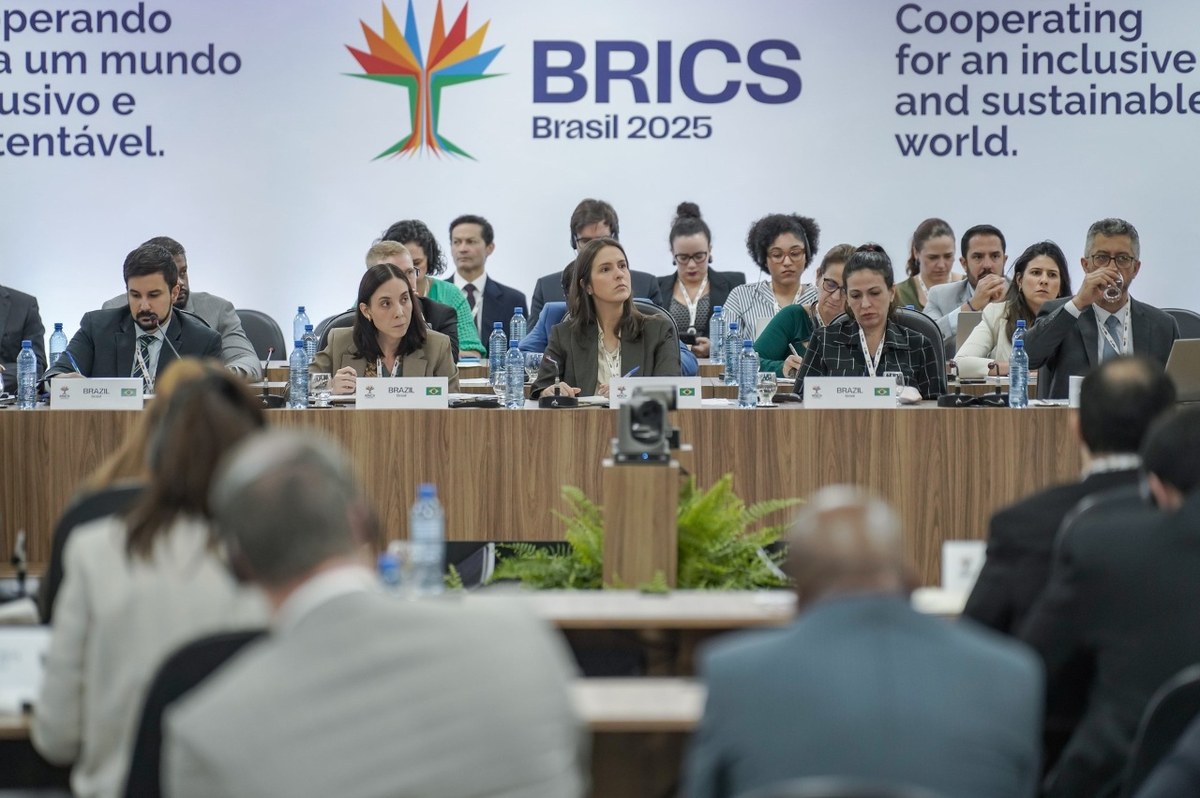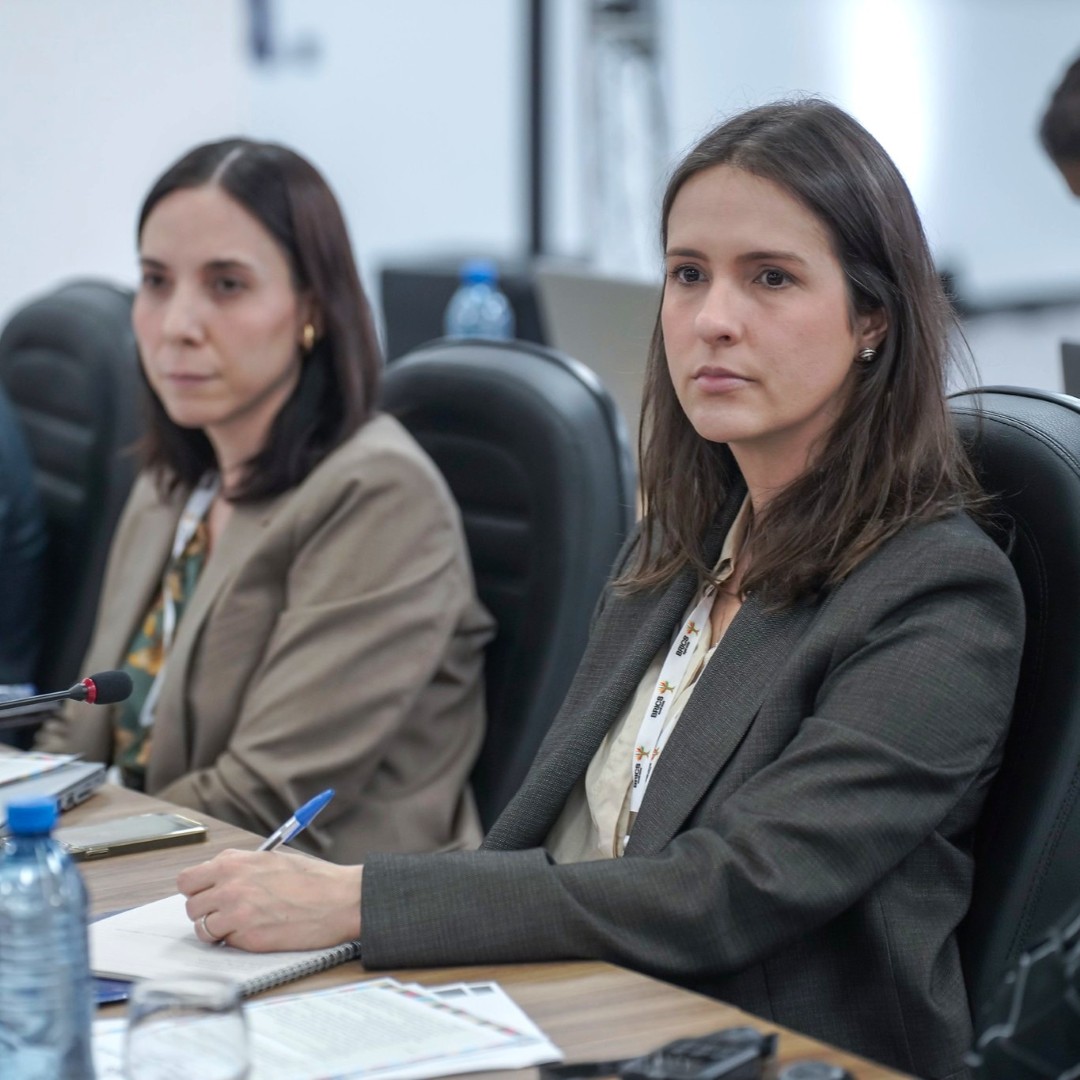Education and Anti-Poverty Programs Are Key to Preventing Terrorism, BRICS Group Concludes
BRICS identifies education and poverty reduction as essential tools in the fight against terrorism. ABIN led discussions on technology, financing, and deradicalization, reinforcing international cooperation

By Leandro Molina / BRICS Brasil
Collaboration: Luciana Marques / ABIN
After three days of meetings in Brasilia, the BRICS Counterterrorism Working Group concluded that advancing education and combating poverty are critical to addressing terrorism, which often exploits marginalized communities and vulnerable regions to sustain its operations. The Working Group is currently coordinated by the Brazilian Intelligence Agency (ABIN), under Brasil’s presidency of BRICS in 2025.
The group considers the financing of terrorist organizations to be a global threat to peace and public safety, with direct implications for social and economic stability—underscoring the need for preventive measures. There is particular concern for children and other family members exposed to adverse social conditions. According to BRICS representatives, these individuals must be reintegrated into society without stigma, and with access to medical, psychological, and educational support.
Ana Ribeiro, Director of the Department of External Intelligence at ABIN and head of the Brazilian delegation in the Counterterrorism Working Group, highlighted the prevention and reintegration programs presented during the meetings. “In exploring how different countries have successfully implemented reintegration programs for former terrorist fighters and early intervention strategies to address ongoing radicalization, participants emphasized the need for a multidimensional approach—one that actively involves both the state and civil society, with a focus on families, communities, and especially local leadership.” she said.
The director also emphasized that government responses must be “in constant adaptation and continuously updated, given the rapidly evolving strategies, methods, and tactics of terrorist groups and violent extremist movements.”
Over the past three days, delegations gathered in Brasil’s capital shared diverse perspectives, knowledge, and experiences on terrorism and violent extremism. Discussions explored the impact of new technologies on the recruitment, financing, and dissemination of disinformation by terrorist organizations, as well as the role of such tools in new forms of violence and self-radicalization.
Examples included the use of cryptocurrencies for fundraising and the spread of terrorist propaganda in multiple languages. Participants also underscored the importance of international cooperation to build state-level capacities in the face of emerging terrorism trends. Harmonizing national legislation with international standards was also identified as a priority.
Brasil Advances Institutionalization of the Counterterrorism Working Group
Ana Ribeiro detailed Brasil’s proposals to strengthen the group’s institutional structure, including the formal regulation of subgroups and updates to threat assessment protocols. “Brasil’s proposal was to establish clear rules for the rotating presidency of each subgroup, ensuring greater objectivity and the renewal of ideas,” she explained. The document, expected to be approved by the time of the BRICS Leaders’ Summit in July, is designed to provide a more solid foundation for the group’s work.
One of Brasil’s key contributions was in the Capacity Building subgroup, which the country has led since its inception in 2019. “This is a cross-cutting priority, because all counterterrorism measures depend on the development of adaptive capacities,” Ribeiro said. Among the initiatives presented was the creation of a matrix mapping training needs and offerings among member states, to be updated annually. Brasil also shared recent advancements in its methodology for analyzing violent extremism, including the distribution of the revised 2025 edition of the Threat Prevention Protocol for Violent Extremism.

The document—developed with input from multiple government agencies and academia—lays down indicators to distinguish violent extremism from ordinary crime. “The idea is that it should be a tool not only for ABIN, but for the entire Brazilian State, and that it may also contribute to international discussions,” Ribeiro noted. The new version of the protocol will undergo internal consultation before its official adoption.
Terrorism in the Digital Age and New Forms of Violence
The meeting also examined global terrorism trends, with particular attention to how extremist groups are using emerging technologies. “Artificial intelligence, for example, is increasingly being used for recruitment and terrorist propaganda,” Ribeiro warned. At the same time, countries discussed how these same tools could be used by states to counter radicalization.
Ribeiro emphasized that terrorism today extends well beyond conventional attacks, encompassing cyber threats and assaults on critical infrastructure. “These are actions that can destabilize entire societies—even without causing immediate casualties,” she explained. In that context, the subgroup on the misuse of the internet considered expanding its scope to include other emerging technologies, such as deepfakes and disinformation tools.
The director stressed that combating terrorism requires a multifaceted approach, including not only security policies but also educational and social measures. “Many countries presented national strategies that combine enforcement with reintegration and prevention programs,” she said. Some nations, she noted, have revised their school curricula to promote values like diversity and social cohesion, while also training community leaders to recognize early signs of radicalization.
Walid Elfiky, head of the Egyptian delegation to the Counterterrorism Working Group, praised the depth of discussions during the meeting and emphasized the need for joint action against terrorism and extremism. “Terrorism has no religion, and it cannot be associated with any one culture or region,” he said. In this sense, he argued that BRICS—made up of diverse nations—is uniquely positioned to develop effective strategies that can be brought to global forums such as the United Nations. “The Counterterrorism Working Group is of great importance. Everything must be synchronized among member states—not only at the financial and economic level but also in the fight against terrorism. We can create solutions that elevate global counterterrorism efforts to a new level,” Elfiky concluded, reaffirming the group’s role in promoting international security.
ABIN will continue working to finalize the proposals approved during the meeting in Brasilia. In the coming months, a draft annex formalizing the structure of the subgroups will be finalized, with Brasil continuing to lead efforts to implement the capacity-building matrix. The goal is to have these mechanisms fully operational by next year, further strengthening BRICS cooperation in the fight against terrorism.
English version by: Judas Tadeu de Azevedo Neto (POET/UFC)
Proofreading by: Michel Emmanuel Félix François (POET/UFC)